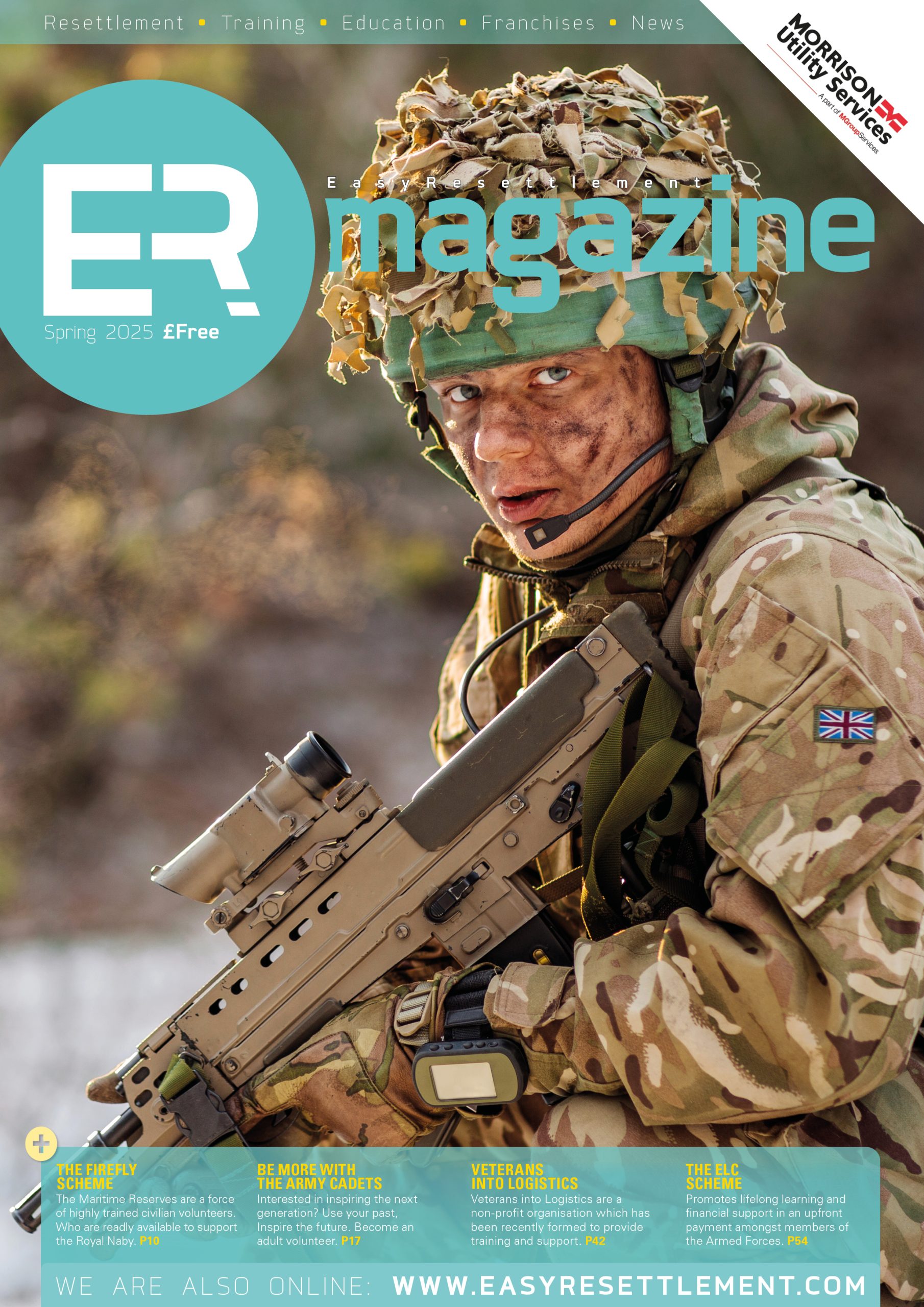Veterans face negative stereotypes when applying for jobs
Forces in Mind Trust’s recent research reveals nearly one fifth (18%) of UK organizations are unlikely to consider hiring veterans due to negative perceptions of their time spent in the Armed Forces.
And female veterans face a ‘double whammy’ of challenges when transitioning into civilian employment – those experienced by Service leavers in general, as well as those faced specifically by women
Female veterans face a ‘double whammy’ of challenges
Moving to civilian employment is known to be one of the indicators of a successful transition from military to civilian life but, according to a report published by Forces in Mind Trust (FiMT), female Service leavers face a ‘double whammy’ of challenges when it comes to securing employment once they have left the Armed Forces – those that are experienced by Service leavers in general, as well as those faced specifically by women.
The research for the report was carried out by Cranfield University and the Institute for Employment Studies (IES), who examined the specific challenges faced by women, their employment outcomes and their experience of transitioning into civilian paid employment. In particular, the researchers looked at the reasons why women have a lower employment rate (69%) compared to men (81%), after leaving the Armed Forces*.
The report reveals that on the whole women leave the Armed Forces voluntarily, most commonly for reasons related to work-life balance, job satisfaction, lack of opportunities, and family responsibilities. One in four (22%) of the 154 women surveyed in the research were not employed, but the majority (68%) of those women wanted to be in work. The female Service leavers and employers interviewed in the report said that women, unlike their male counterparts, undervalue their past experiences and may deselect themselves from roles they are suitable for.
Katie Watson served in the British Armed Forces for ten years including tours in Bosnia and Northern Ireland, before leaving and entering employment as an NHS hospital chaplain in Newcastle. Katie believes that “one of the toughest things for employers is understanding what women actually do in the Army and the skills we bring to our place of work. There is a misunderstanding that because we may not have all engaged in combat, we weren’t on the front line, playing a vital role in operations. We veterans are a unique breed. We’ve got a ton of assets but also have our idiosyncrasies. By listening to veterans within their organizations employers can better understand the brilliant skills and ethos we bring from the Armed Forces”.
For some female veterans, there are additional challenges to securing civilian employment. Deirdre Mills, Chief Executive of The Poppy Factory, said: “For female veterans with mental or physical health conditions, the barriers to employment can be especially significant. The Poppy Factory offers a bespoke and intensive service for each individual veteran however and, with the right support in place, these women can flourish in their new careers and become an asset to a wide range of civilian employers.”
The University of Cranfield report calls on the Ministry of Defence and employers to provide increased flexibility in working practices and childcare, and support and advice for women leaving the Armed Forces, including how to find employment that allows flexible working and in sectors not traditionally seen as avenues for Service leavers. It also suggests the MOD promotes the benefits of employing female Service leavers and supports employers to do so.
A collaborative effort is needed. Professor Emma Parry, lead researcher at Cranfield University, explains: “Female Service leavers face a double whammy of obstacles when it comes to transitioning into civilian employment. Only a minority of the women we spoke to felt that they received enough support during transition, and some said that the support they did get was not properly tailored to their needs. We hope this study inspires a collective effort to improve their transition to civilian employment.”
The negative stereotypes facing all veterans
While women face multiple challenges when moving into civilian employment, negative stereotypes of veterans is a significant barrier facing both male and female Service leavers, according to a survey released by Forces in Mind Trust. The poll, conducted by YouGov, reveals that nearly one fifth (18%) of UK senior decision makers with hiring responsibilities are unlikely to consider hiring veterans, mostly due to negative perceptions of time spent serving in the Armed Forces.
Of the negative perceptions held by employers, the most common is that veterans do not have the relevant skills or experience, a belief held by nearly half of employers unlikely to hire veterans (44%). This is followed by the view that veterans may not fit the culture of the workplace (19%) and their skills from active duty may not translate into a business environment (18%).
These negative perceptions of Service leavers’ time spent in the Armed Forces highlight the misunderstanding that veterans are unskilled or unfit for business environments. Such views are unfounded and damaging to veterans’ employment opportunities, according to FiMT Chief Executive Ray Lock. Ray states “employers must ensure these unhelpful perceptions are addressed in their recruitment processes, so that they benefit from the skills that veterans can bring to their organization. Veterans gain strong leadership, communication, management and STEM skills from their time spent serving. Since the UK currently faces a STEM skills shortage, and as the evolving world of work cries out for better leadership and collaboration, employers would do well to tap into veterans’ talents, for the benefit of both veterans and UK organizations”.
Over a quarter of the organizations polled in FiMT’s research (27%) have never hired a veteran and 10% don’t believe taking advantage of the skillsets of veterans would bring them any value. Ray states “we need to increase awareness and understanding among civilian employers of how Service leavers’ skills fit their recruitment needs. This will help the annual 14,000 Service leavers find fulfilling employment, and the many UK businesses improve their performance”.
FiMT’s mission is to enable ex-Service personnel and their families to make a successful and sustainable transition to civilian life. It delivers this mission by generating an evidence base that influences and underpins policy making and service delivery, and by strengthening the Armed Forces charities sector through collaboration and leadership, and by building its capacity.
The Veteran Employment research was commissioned as part of FiMT’s Employment Programme, which aims to ensure that no ex-Service person, or their spouse or partner, is disadvantaged in achieving a successful employment outcome. Over 1,000 senior decision makers were polled, including private, public and third sector organizations of all sizes.

